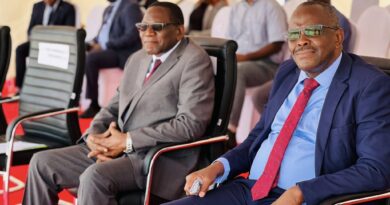Budget Shortfall Jeopardises Zambia’s Water and Sanitation Goals, NGO Forum Warns
The Zambia NGO WASH Forum has warned that the government’s 2026 National Budget allocation to the water and sanitation sector risks derailing the country’s commitment to achieving universal access to safe water and sanitation by 2030.
The Forum, a network of 41 organisations championing water, sanitation and hygiene (WASH), noted that the Ministry of Water Development and Sanitation (Head 52) has been allocated K2.69 billion, a 9.4 per cent nominal increase from 2025. However, its share of the overall budget has declined to 1.06 per cent, down from 1.13 per cent in 2025, and remains well below the 3.5 per cent annual investment target set under the Eighth National Development Plan (8NDP).
At a two-day 2026 Post-Budget Analysis Workshop held at Lusaka Legacy Hotel, stakeholders cautioned that the persistent underfunding, coupled with over-reliance on external financing, places the WASH sector on an “undesired trajectory” for meeting national and global access targets.
Forum Coordinator, Bubala Muyovwe-Mumba, stressed that safe drinking water and sanitation are recognised human rights in both Zambian policy and international law. She warned that inadequate investment undermines the state’s obligation to progressively realise these rights, particularly for the rural and urban poor.
“A rights-based approach requires that strategies, budgets and policies prioritise dignity, equality and inclusion. No Zambian should be left behind or discriminated against in access to water and sanitation,” she said.
Among the key recommendations, Ms Mumba called for:
- A comprehensive monitoring and evaluation framework to improve budget coherence, financial tracking and evidence-based policy;
- Measures to secure the financial sustainability of Commercial Utilities (CUs), including cost-reflective tariffs, faster government debt repayment, timely disbursement of funds, and a national strategy to strengthen CUs’ expanding mandate;
- Greater prioritisation of sanitation as a public health and human rights issue, particularly through support for non-sewered systems serving 85 per cent of Zambians;
- A shift from capital-intensive spending to recurrent investment in maintenance and efficiency, guided by life cycle costing;
- Gender-responsive budgeting, with systems to ensure allocations address the disproportionate burden on women and girls from inadequate WASH services.
She added that these reforms are crucial to restoring sector sustainability, fulfilling Zambia’s human rights obligations, and ensuring that investments deliver equitable and lasting impact.
The workshop formed part of the Water Voices United project, a four-year EU and Danish People’s Aid co-funded initiative spearheaded by SNV in partnership with the NGO WASH Forum. The project seeks to strengthen the role of civil society in WASH governance and support government efforts to realise the human right to water and sanitation.



